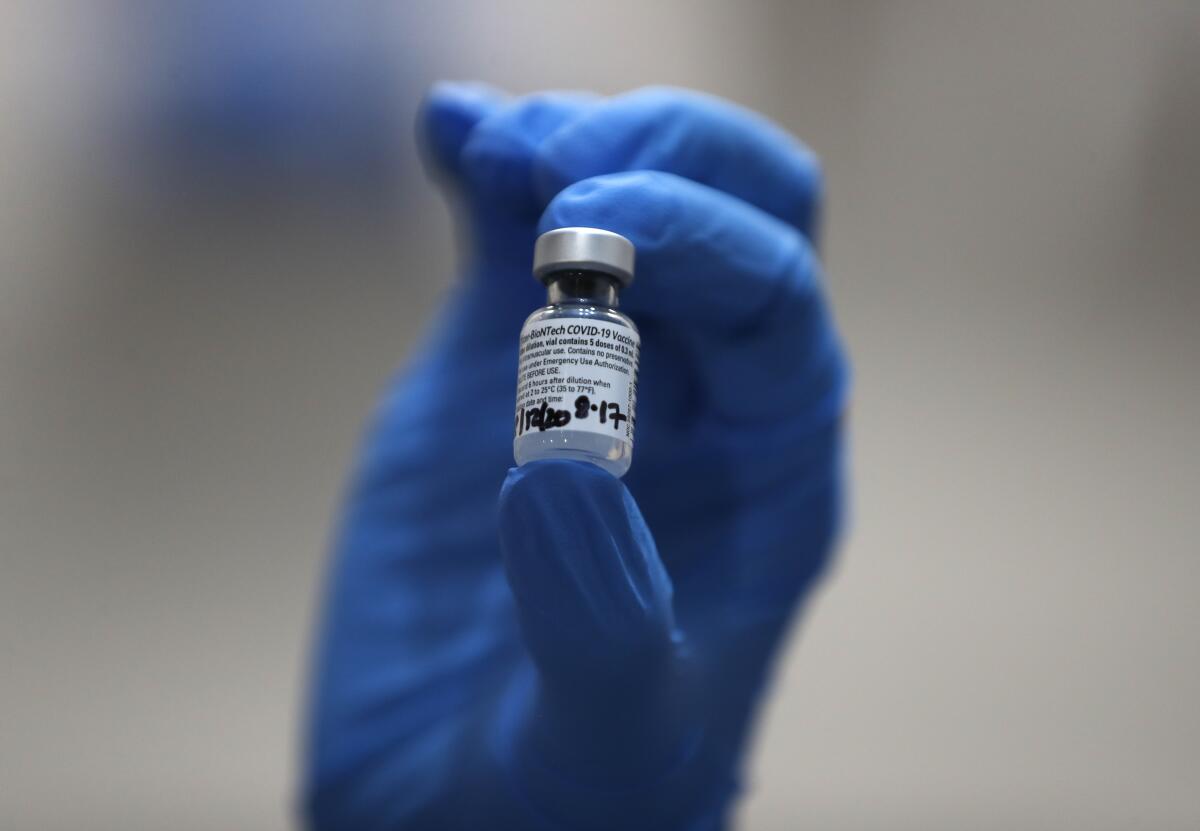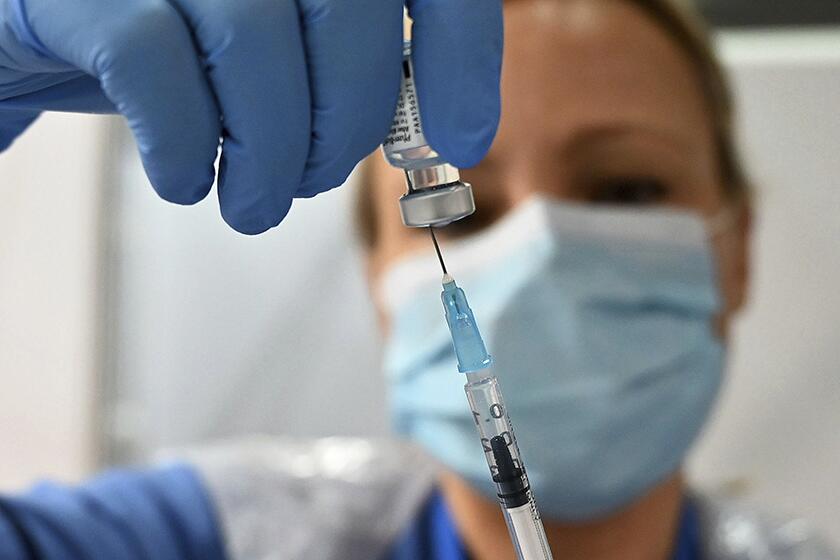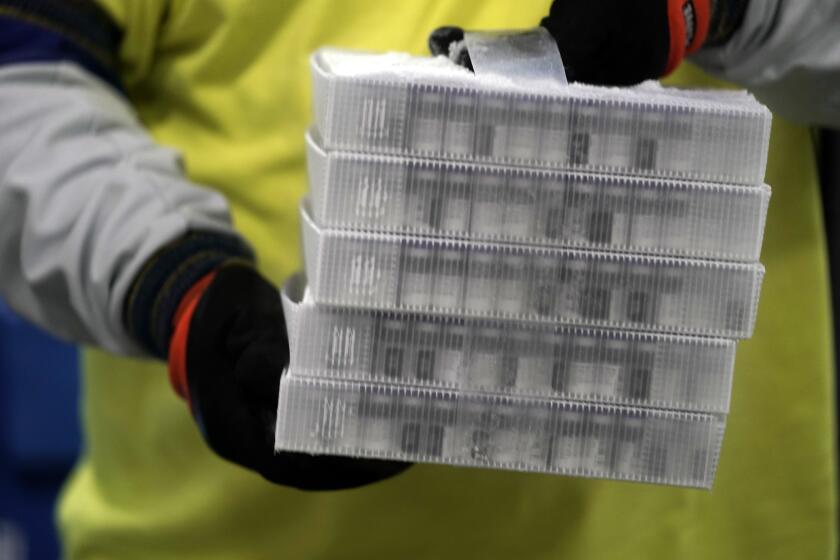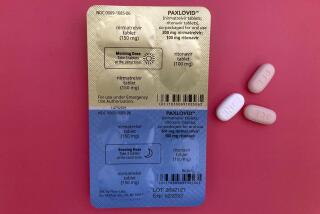Why is the European Union taking so long to OK a COVID-19 vaccine?

- Share via
AMSTERDAM — As Canadians, Britons and Americans begin getting immunized against the coronavirus, pressure is building on the European Medicines Agency to approve the shot made by Pfizer and the German company BioNTech. German officials have been especially vocal that they want it approved before Christmas. Here’s a look at the European Union’s approval process:
What is the European Medicines Agency?
The EMA is the EU’s medicines regulatory agency and approves new treatments and vaccines for all 27 countries across the European Union. It is roughly comparable to the U.S. Food and Drug Administration. The agency is headquartered in Amsterdam and has nearly 900 employees.
Why is the EMA taking so long to approve a vaccine?
Britain, Canada and the U.S. granted approval for the Pfizer-BioNTech vaccine to be used under emergency-use conditions earlier this month, meaning that the shot is an unlicensed product whose temporary use is justified by the urgency of a pandemic.
The EMA’s approval process for coronavirus vaccines is largely similar to the standard licensing procedure that would be granted to any new vaccine, only on an accelerated schedule. The companies will still need to submit follow-up data to the regulator, and the approval will need to be renewed after one year.
A lot of things are different when you’re in the midst of a global pandemic. A case in point: How federal regulators scrutinize and authorize new vaccines.
EMA Executive Director Emer Cooke said that while the U.S., British, Canadian and EU regulators are all largely looking at the same data, “we may not have all gotten it at the same time.” The EMA began its expedited approval process of the Pfizer-BioNTech vaccine in October, and the companies formally asked for their shot to be licensed Dec. 1.
Using its expedited approval process, the EMA says the time for assessing a new drug or vaccine has been shortened from about 210 days to fewer than 150.
How will the EMA decide whether to OK the vaccine?
The EMA is convening an “extraordinary” meeting Dec. 21 — moved up Tuesday from Dec. 29 amid pressure from some European capitals — during which experts will discuss the data behind the Pfizer-BioNTech vaccine. The meeting, which will be closed, will include a presentation by two officials charged with assessing the vaccine and could also entail bringing in company representatives to answer questions.
Within hours of the meeting’s conclusion, the EMA will issue a statement on whether it is recommending approval of the vaccine. Several days later, the agency will release its full scientific assessment explaining the decision.
EMA approval is valid in all 27 EU countries. Once it is granted, countries can start receiving vaccines for immunization campaigns. An Italian health official says all EU countries want to start vaccinations on the same day.
Will the EMA speed up its approval?
Cooke, the agency’s chief, said Monday that staff members are working “around the clock.”
“We feel a huge responsibility to get this right ... to make sure that what we deliver in terms of a scientific opinion is robust and reliable,” Cooke said last week. “It’s already a huge responsibility, I can tell you, without putting a race around it.”
The first coronavirus vaccinations came on a day when the U.S. death toll climbed past 300,000 — nearly 11 months after the nation’s first case was diagnosed.
Is the agency examining any other coronavirus vaccines?
The EMA is also planning to convene a meeting Jan. 12 to consider approving the COVID-19 vaccine made by Moderna, but said that discussion, too, could be moved up earlier.
It is also assessing data from two other vaccines, one made by Oxford University and AstraZeneca and the other by Janssen, but neither of those two companies has yet made a formal request to be licensed in the EU.
How will the EMA make sure a vaccine is safe once it’s being used?
The agency usually asks companies to deliver data on vaccines’ safety and side effects every six months, but because of the pandemic, it will be asking companies for that data every month.
“We need to consider how [these vaccines] perform once they are once they are deployed in a mass-vaccination situation,” Cooke said, adding that the EMA is adopting extra surveillance measures to detect any rare or serious side effects.
Although tests of the Pfizer-BioNTech vaccine suggest that the shot is safe and about 95% effective in preventing COVID-19, there is no long-term safety data on it.
More to Read
Sign up for Essential California
The most important California stories and recommendations in your inbox every morning.
You may occasionally receive promotional content from the Los Angeles Times.















